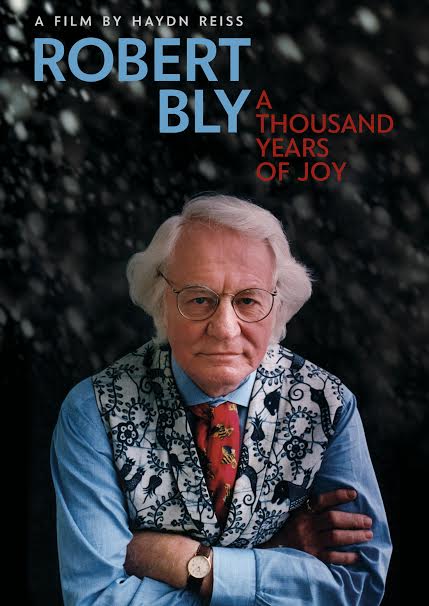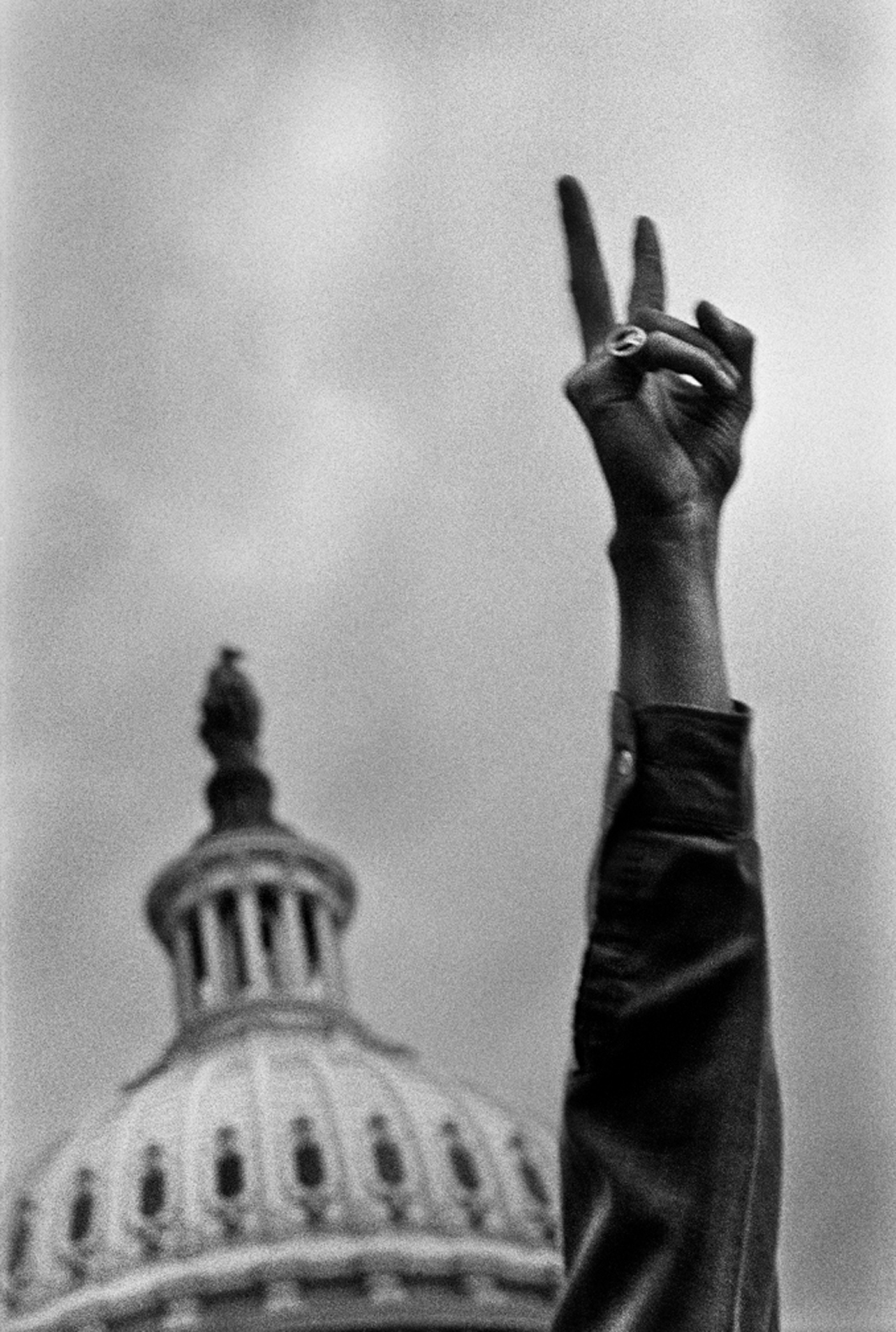Out In The
Be-Bop Night- The Search For The Blue-Pink Great Western Night-Postscript- The
Torch Is Passed?- February 2011
Maybe it was the sheer, hard fact of the California night calling after too long an absence, the California be-bop late 1960s night, the eternal California be-bop night after years of Maine solitude, of Maine grey-blue-white washed, white-crested, white-capped, foam-flecked Atlantic ocean-flotsam and jetsam strewn waters. After all not all oceans are created the same, not all oceans speak to one in the same way, although they are all old Father Neptune’s thoughtful playgrounds.
California’s, yes, white-washed, yes, white-crested, yes, white-capped, yes, foam-flecked speak to gentle, warm lapis lazuli blue wealth dreams of the quest, the long buried life long quest for the great blue-pink great American West night, blue-pinked skies of course. Yes maybe it was just that sheer hard fact that pushed me out of Eastern white, white to hate the sight of white, snowed-in doors, Eastern gale winds blowing a man against the sand-pebbled seas, and into the endless starless night. Yes, maybe just a change of color, or to color, from the white white whiteness of the sea walk white-etched night. Right down to the shoreline white.
Maybe it was the sheer, hard fact of preparing, against the timetable of that Eastern white night, this and that for the winter California day, and night, the ocean California that set the thoughts of the be-bop night, and the quest for the blue-pink skies humming once again in the, admittedly, older-boned voyager, voyeur of dreamed once sultry, steamy nights. A different proposition, a different proposition, on most days, from preparing to face fierce Maine winter mornings, unaided by the graces and forms nature provides its hardier creations. No thoughts today of heavy woolen coats, double-stitched, double-plied, doubled-vested, old nor’ easter worthy, or heavy woolen pants, same chino pants of youth, same black chino pants, no cuffs, except winter weight, not the always summer weight of no knowledge youth, or heavy boots, heavy clunky rubberish boots mocking against the snow-felt, ocean-edged soft sand streets, or maybe, more in tune with aged-bone recipes heavy-soled, heavy-rubber soled (or was it rubber souled) running shoes (also known in the wide world of youth as sneakers, better Chuck’s). Of scarves, and caps, full-bodied caps, better seaman’s caps, heavy, wool, dark blue, built to stand against the ocean-stormed waves crashing and thrashing against ships hulls, and gloves, gloves to keep your hands from frosty immobility I need not speak. Or will not speak.
No, today we think of great controversies of age, well, mini-controversies anyway, between hi-tech-derived aero-flow, toe-fitted, sheer meshed sneakers, or just old-fashioned, Velcro-snapped criss-cross leather sandals, toe-dangling in the sand streets ready. Or between jungle-fitted, twelve-pocketed (or so it seems), straight from the Ernest Hemingway African safari night ( so it seems, again) else, maybe, out of mad man gonzo journalist Hunter Thompson in full loathing regalia, or Reebok, Nike, Adidas, New Balance free-for-all athletic shorts. Or between hearty windbreakers, fit for eastern gales and western el ninos, versus light denim, light blue, tight fit, well, maybe tight fit, be young Marlon Brando or James Dean-worthy in some motorcycle hidden fantasy, jackets. All decisions, all timed but irrevocable once inside the airport terminal, and its maze, no beyond maze, beyond rate maze, of security and scrutiny.
Maybe it was the sheer, hard fact of just that airport invasion, the hard fact of the post-9/11 travel world. The running the gauntlet of checkpoints, charts, human body scanning screens, magic forgery detecting pens, bells, whistles, and surly, or maybe better, indifferent, human scanners, human searchers, human checkers. The piles of thrown away, seemingly harmless, harmless to these eyes, water bottles, pure-spring-ed water bottles (Evian, Poland Springs, Belmont Springs, home-filled reusable, filtered tap water L.L. Bean bottles, whatever) which now are deadly weapons, or could be, are a twisted metaphor for the scene. All in order to get from point A (east coast angry ocean waters) to point B (west coast, or hipper, at least used to be hipper, left coast gentle, spa-like, or faux spa waters) in less than six hours.
No more of timeless trips, or at least of months’ long trips, aimless but aim-full in their purposeful search. No more of Boston to Angelica Steubenville to roots Prestonsburg to Lexington (Kentucky that is, not revolutionary battlefield Lexington, not that trip anyway). No more Moline meltdowns and Neola corn field nights and Aunt Betty lazy, crazy, hazy suppers or solidarity rides to the desert Native American ghost sky night, drums beating back to primal times, and then over the last mountains down into California blue-pink haze. No, six hours, no more, or else breakdown against those bone-aged facts, and bone-aged stiffness rebellions. Or worst surrender to the think better, or at least twice, of such a trip gods, Egad has it come to that.
Maybe it was the sheer, hard fact of riding a rental car, a rental car, my god, a mid-sized, almost brand new, gadget-filled lights, horns, windshield wipers all controlled, whiplash computer-controlled, at the touch power steering. And I like a kid, a dumb, no California hot-rod head under the hood kid with car-ness in the very blood, but more of a youth spent no car, not dough for a car, miles walked, sneaker miles walked, kid, scratching my head to figure out what goes where and screaming onto that good night about how the hell have we come to such a complicated place where it requires seven degrees in astro-physics, at least, to get the damn thing started. No more of drowsy early morning truck stop diner pick-ups by benny-high, reds-low, mortgaged to the teeth zen truck-driving road masters carrying freights from here to there (I would say from point A to point B but that is used up already). No more of psychedelic- painted, further night, magical tour buses, old time yellow brick road school buses converted to living, breathing space on the endless hippie hitchhike 1960s road. No more even of old country hay wagons named, or misnamed, trucks picking up likely farm hands, penny-poor likely farm hands, to work for a few days before moving on. No more of that, indeed.
Maybe, and here we are reaching some home truths, it was the sheer, hard fact of seeing the azul ocean sea coming over the horizon at Laguna Hills or one of those endless, one-name-fits-all or should fit all Southern California beach towns filled with the mandatory fake, yes, fake Spanish décor. Of the ticky-tack rows (thanks Malvina Reynolds via Pete Seeger) of “Spanish” houses, oh, I mean, estates, where I see kids, kids no different than I was just waiting for the jail-break event of their generation, if it comes, and if they want long enough but not too long. Of the million and one surf shops for the youngsters to wax and wane on seeking of their own blue-pink nights (or days, more likely), the endless quest for the perfect wave. Of the strip mall rows of fast food eateries, fast clothes chanceries (swim suits a specialty), of sun-free indoor tanning against the rages of father sun. Of the quaint (nice word, right?), yes, quaint lobster dinner (lobster flown in from, from, ah, Maine), California fresh fish of the day, freshly caught, beach view restaurants or other finery, and of cruising (no, not that cruising) pedestrians of all sizes and shapes.
Shapes including show-off lovely formed younger girls, ah, women, maybe a young Angelica waiting to splash her first splash in mother Pacific, peaceful mother pacific. And all races and languages and ethnicities trying to figure out the lure of the heathered (almost like Scotland, Scotland of no burr) coastal shore to the Okies, Arkies and Texies, who descended here a couple of generations ago, planted roots, their migratory roots, not Eastern forever and a day roots, and never left. But still the gnawing question, the question of questions-where to go west from here. Not back to the okie dust bowl, that is for sure, not for those now corn-fed, yellow-haired (maybe genetically yellow from that corn) beauties of both sexes who are tied to the sea, to the endless quest for the perfect wave sea, even though from the look of them if I posed the question that way, that perfect wave search way, I would shunted away screaming in that previously mentioned good night.
Maybe it was the sheer, hard fact of walking ancient shoreline walks, soft sand- kicking, shod-less feet kicking, tracing new written configurations to ancient gods in the previously clean-slated sand surface, occasionally pebble-dotted, seashell-scattered, as the ocean screams for quiet from those walking in its space and pleads, like some latter day librarian, not to disturb others. Of thoughts of ancient sorrows, and ancient laughters. Remembrances of Angelica first time ocean splashes, of riptide saves, of hero’s rewards for heroic saves, rewards better left to the imagination, ancient imagination. Of scaled seawalls that hold back tide, time and the brick-a-brack whims of fickle man, of humankind. Of squirrels, everlasting, ever-present seashore-loving burrowing squirrels filching, filching and begging, begging for human food against all good nature’s wisdom.
And getting it. The food that is. Of ocean side night campfires to protect against the force of the ocean chill, of ocean shadows, and of ocean smokes, thinking back to the days when cigarette smokes filled many public spaces. But better smells now of mesquite wood smells, of charcoals broils smells, of sea-drug up woods smoothed from ocean pounds smells. Of high ganja smells, of pellets and pills to ward off the ocean calls to the endless sleep, of the return to the homeland, of the homeland seas. And of skies of daytime blue, blue, blue enough to make a pair of pants out of, cloudless in afternoon after fogged-down mornings. Ah, but you know what’s coming, what the whole shore line walk means. Yes, the night, no, not the night night, the dark, starless night of the poet’s lament, of ancient times wonder, and of modern no night human-crafted light beams breaking the will of the dark night. No, not that night but rather the earlier part, the part after the sun goes on its business below the horizon and leaves as a reminder the blue-pink night hanging over the ocean, tourist taking pictures, taking camera, digital camera pictures today, instant, mainly, but, hell who need such tacky reminders when the mind’s eye reeks of blue-pink memory, ancient blue-pink memories.
Maybe it was the sheer, hard fact of leaving, of returning east fast, faster as it turns out that heading west, west to the blue-pink night, to the be-bop night. I will not speak of that airport maze, rat-like or not, again it does not vary on the way back any more than going to. Now I speak of those haunts, those dreaded ancient haunts of having to return to eastern concerns, eastern worries, eastern woes, and a feeling, an old feeling an old Joyel-time feeling of having to go back to routines, not the regular routines that make life bearable but the routines of routines that drive one out on the midnight run to wherever, whenever. And to see, although see only in a flash, the contours of the American night, of the sense of the American landscape, of roads and rivers it took months for ancient pioneer Conestoga wagons to traverse, and weeks for ancient hitchhike roads to swallow.
All blaze past in a flash, all lighted strange patterns civilization.
Maybe it was the sheer, hard fact of grabbing a midnight-like cab for the ride home, eastern home, eastern snow-drenched home that had not changed in sight but changed from still present blue-pink memories as always, from leaving but still necessary to face. On such cab rides, such youthfully scorned cab rides, and truth be known youthfully unaffordable rides, I now take when language is no barrier to asking for cabbie stories (although many times such is a problem as this is now a profession, a city profession, by recent immigrants, dominated, seemingly oxymoronic, since how would such fellows know the ancient trails of the east, at least in pre-techno- GPS days) in the hopes of finding some gem story to feed the literary lights, not blue-pink lights by any means, just fill-in road stories. And this night, this night when thoughts have been whirling for weeks about ancient things, ancient things described above, I find a kindred. Cabbie X, ancient cabbie X, fires back in full-bodied, “I don’t have any cabbie stories to tell, but I have some hitchhike stories.” Hell, hell on wheels, be still my heart, tell, brother, tell kindred tell all, and drive slow, stop at every traffic light slow, I have dough in my pocket and a hunger, an unspeakable, unquenchable just now hunger, to hear your tales, your ancient 1960s hitchhike road tales.
Tales about his road from Missoula, Montana to New Haven, Connecticut. (Yes, avoid hitching on those Connecticut roads, and Arizona’s too. Agreed). Of Truckee truck stops. Of truck stop road side diners, and endless cups of coffee, and badgering truckers for long-haul rides. Of hard driving, get to the coast, benny-high truckers seeking to spill their guts to some lone stranger in order to keep awake and pass the hard highway mile. Of Pacific Coast highways brimming with converted magical mystery tour school buses, converted to living housing for the broken-hearted, the love-lorn, the be-bop nighters. Ah, memory. “Hey, you almost didn’t stop at that last traffic light, brother.”
More, more please. Of Nevada desert stops, waiting by lonely crossroads for hours, reading scrawled signs from ancient forbears, maybe those very Conestoga folk, warning that one may wait for a ride to perdition there. Of dope smoke, of friendships, many fleeting, but a feel for that good moment. And at the close of that cabbie night a thought , a cabbie thought- we made it, we were better for it, and we can survive in this old world because we made that venture. No need to speak of the blue-pink night to this brother, such words would be wasted. This is that now dwindling fraternity that sought, maybe still seeks that good night, and that is all that needs to be said. A revolutionary brotherhood handshake, a handshake too hard to describe here but fraught with meaning back in those days, at my door seals our night’s work. Yes, memory almost like a yesterday memory, finely-etched in our collective minds, recallable at an instant.
Maybe it was the sheer, hard fact of carrying around , winter long, winter, snow-blasted long, a song/story in my head, a story recorded by Red Sovine and which I heard by way of the inscrutable Tom Waits, Big Joe and Phantom 309. A story of a fellow hitchhike roader caught out in one of those lonely crossroads to nowhere that every seeker knows about, although they are not always windswept and rain-drenched. Sometimes they are snow-frozen, sometimes, heat-drowned, sometimes, not enough times, just plain, ordinary sunny-dayed. Out of the mist comes the mythical trucker, Big Joe will serve as well any other name, although when I think trucker I always think Denver Slim as he was neither slim (far from it) nor from Denver, and that tells a tale right there. So they ride the night away telling lies and other stories until they come near a truck stop and Big Joe freaks, and the hitchhiker is left, after Big Joe pitches him a dime, to go in for a cup of coffee on Big Joe. Said hitchhiker goes in and tells his story of the ride and with whom and gets the lowdown from a waiter. See Big Joe died, truck-faithful, Phantom 309 faithful died, when he avoided a school bus filled with kids out on that lonely pick-up crossroad. But see Big Joe did another favor, a hitchhike brotherhood favor as the waiter says “have another cup of coffee and keep the dime, keep the dime as a souvenir of Big Joe and Phantom 309.” Great story and I have my own just like it, and Brother Cabbie X had his own, and every man and woman who ever hit the road, by force or desire, has that same story just mix it up a little.
Maybe it was just the sheer, hard fact of listening, listening attentively, listening eagerly on the rented car California roads to old road warrior, Wobblie, kindred of tramps, bums, and hoboes of an earlier age, an age which intersected with the hippie hitchhike road of the 1960s, the late folksinger/songwriter Bruce “Utah” Phillips and his definite Songbook. Listening to old songs of struggle from prairie days, of hobo jungles by the railroad tracks (not today’s high speed ones, no way), and train-jumpers (a different breed that we highway hitchhikers but still searchers. I never had much luck on the trains, and got tossed off a few by the railroad bulls, so I will leave that mode of transportation alone), skid row nights, sidewalk sneers, and destruction of the western hobo night by gentrification. Of paperless street benches, of paper-filled bus depot benches, of public bathroom stenches, of half-way house snores and hostels bland food that dotted the old transient landscape, and have seemingly faded from memory, except on twilight California streets as the homeless hoboes make way to the beach and night time sleeps, sleep it offs, mainly.
Yah, maybe it was all those sheer, hard facts, collectively or individually, that brought me back to memories of the ancient hitchhike road, especially that brother cabbie scene but, finally, here is the real reason. Let me go back to those California roads for a minute, no, not the Pacific Coast highway freedom road (Routes 1 and 101) but the high volume, hard-driving, eighty billion-laned (okay, I exaggerate) Interstate 5 that, one way or another, goes up and down the length of the state. Actually let me go back to the one of the entrances, one of the Oceanside entrances, where beyond belief I spy two youths, a male and female, two youthful Markins and Angelicas maybe, standing on the corner, waiting, waiting for a what. A hitchhike ride of course. In the second it took me to realize that this is what they were doing (they held out no thumb, nor had a sign indicating where they were heading, obviously “green” at this work) and slammed on the brakes I was beside them. “Where are you heading?” asks ancient seeker narrator of this tale. “L.A.,” they shoot back. “Get in.” And they do, the guy (Brandon) in the front and the gal (Lillian) in back. At least they have enough sense to make that configuration, that pair male –female configuration, like we did in the old days just in case things got weird. And I had no intention, no intention in hell, of going back to L.A. that day, except one million questions about their purpose, their reasons for being on the road, and ancient courtesies that dictated that I pick up hitchhikers, a rare, incredibly rare occurrence these days. I will let them tell their stories some other time because this after all is my story but their quest, in any case, involves nothing as grandiose as the search for the blue-pink night although it involved Generation X dreams, and that will have to do.
So the torch is passed, maybe…
Or maybe it is the sheer, hard fact of that knapsack, old Army surplus olive green knapsack, moth-eaten, maybe, moldy, well hitchhike-traveled, well-worn, a lasting memento to that 1969 Angelica-paired road trip sitting in some back closet, up in the attic, or worst, down in the forlorn cellar crying to get out, or maybe some old sea shell of infamous origin also back there calling me back, back to our homeland the road, and the eternal, now I know it is eternal, search for that blue-pink great American West night.







